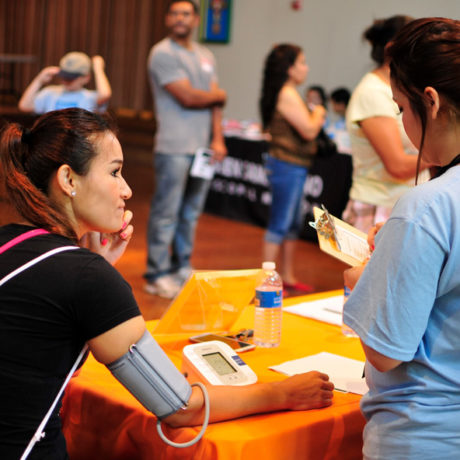
Texas is in the process of re-applying for a federal Medicaid 1115 waiver that would provide funding to help cover safety-net hospitals and mental health providers that treat uninsured patients.
The Medicaid waiver offset provider costs. Medicaid expansion provides health insurance so that patients have a means to pay their doctors, hospitals, and pharmacies. Medicaid waivers and expansion can be complicated and confusing, but here’s a real-life example to help make the differences a little easier to understand.
Amber is in her 20’s and is a student at the University of Houston. She goes to school and works part-time at a grocery store, so she doesn’t have health benefits and can’t afford health insurance. Her mom works an hourly full-time job, but she doesn’t have health benefits that she can use to cover Amber.
If Amber were to get really sick or have a serious medical event like a heart attack, she would go to the ER. Because she’s uninsured, the hospital would be able to get funds from the Medicaid 1115 waiver to help to cover its cost for Amber’s care. But after Amber leaves the hospital, the Medicaid 1115 waiver funds will not pay for any of Amber’s follow-up doctor’s visits, rehabilitation or anything other care she still needs to recover. She’s back to being uninsured, faces a tougher battle to maintain good health, and is more likely to end up back in the ER. So, the Medicaid 1115 waiver helps fund hospitals for uncompensated emergency care.
If Amber suffered the same medical event, but had Medicaid health insurance under Medicaid expansion in Texas, things would be much different. For starters, doctors may have already diagnosed her issue because she’s more likely to have had regular visits to her doctor because now she can afford them. If she ended up in the ER with something like a heart attack, Medicaid health insurance would pay the hospital for her care. After leaving the hospital, Medicaid insurance would also pay for Amber’s follow-up visits to the doctor, rehab, or other care she still needs. She would still have ongoing health insurance because Medicaid health insurance isn’t a one-time coverage program. That means Amber would be more likely to go to the doctor regularly or seek other health care because she can now afford it. She would face an easier battle to maintain good health and would be less likely to be back in the ER.
Uncompensated emergency care funds would still be needed for hospitals even with Medicaid expansion in Texas. But to help find a solution for the millions of uninsured across the state, the fix has to be MORE than just a hospital-based program. We believe the real solution to improve health for uninsured Texans should be focused on finding a way to provide health insurance coverage to low-income Texans who need it most.